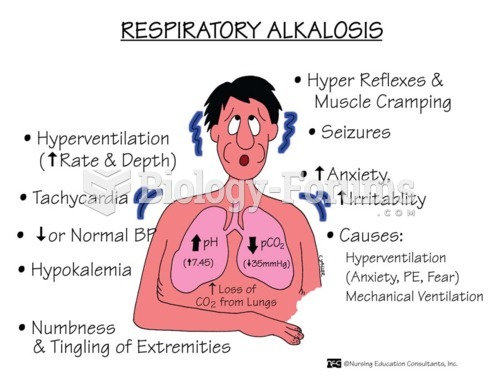|
|
|
In 1844, Charles Goodyear obtained the first patent for a rubber condom.
All patients with hyperparathyroidism will develop osteoporosis. The parathyroid glands maintain blood calcium within the normal range. All patients with this disease will continue to lose calcium from their bones every day, and there is no way to prevent the development of osteoporosis as a result.
Cutaneous mucormycosis is a rare fungal infection that has been fatal in at least 29% of cases, and in as many as 83% of cases, depending on the patient's health prior to infection. It has occurred often after natural disasters such as tornados, and early treatment is essential.
There are more bacteria in your mouth than there are people in the world.
More than nineteen million Americans carry the factor V gene that causes blood clots, pulmonary embolism, and heart disease.







